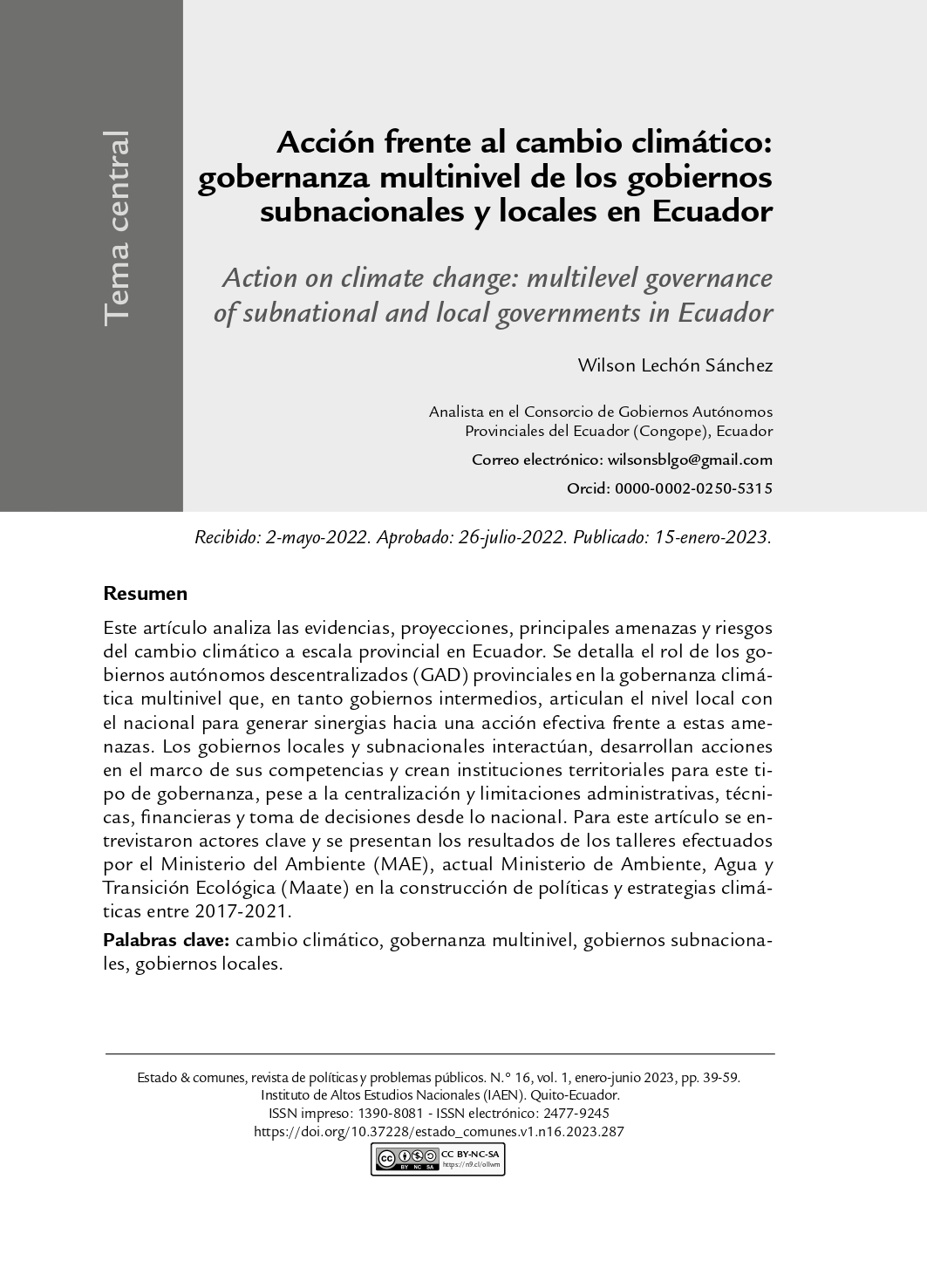Action on climate change: multilevel governance of subnational and local governments in Ecuador
Main Article Content
Abstract
This article analyzes the evidence, projections, main threats, and risks of climate change at the provincial level in Ecuador. It details the role of provincial Autonomous Decentralized Governments (GAD) in multilevel climate governance which, as intermediate governments, can articulate the local level with the national level to generate synergies for effective action in the face of climate change. Local and subnational governments interact, develop actions within the framework of their competencies, and create territorial institutions for climate governance despite centralization and administrative, technical, financial, and decision-making limitations at the national level. This article consideres interviews with key actors and the results of the workshops facilitated by the Ministry of Environment (MAE), currently the Ministry of Environment, Water and Ecological Transition (MAATE) that addressed the construction of climate policies and strategies between 2017-2021.
Downloads
Article Details
How to Cite
Issue
License
CC BY-NC-SA. This license allows sharing, copying, distributing, performing, and publicly communicating the work, as well as creating derivative works.











